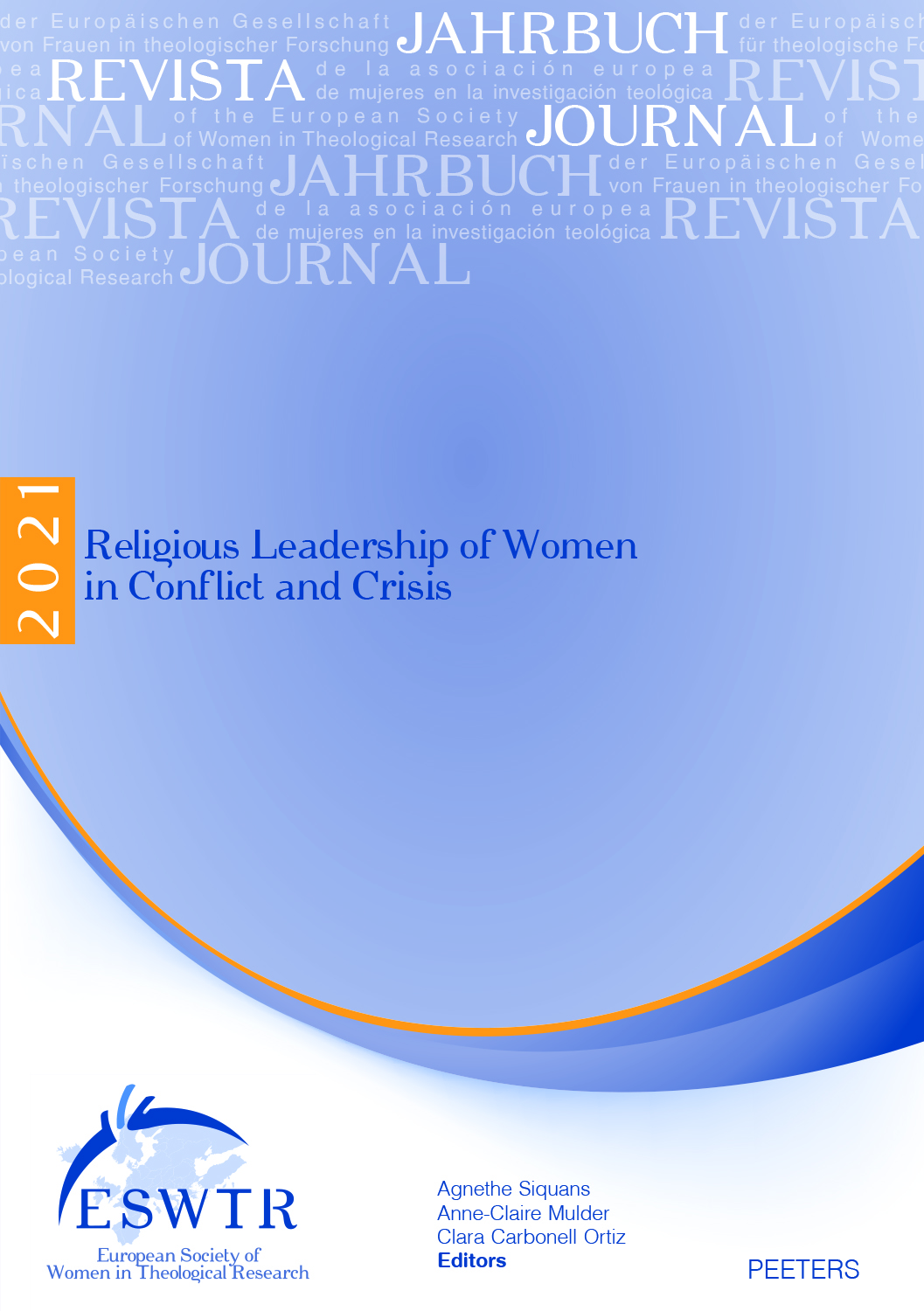 previous article in this issue previous article in this issue | next article in this issue  |

Preview first page |
Document Details : Title: Occupy Heaven and Jesus's Movement Author(s): KWOK, Pui-lan Journal: Journal of the European Society of Women in Theological Research Volume: 22 Date: 2014 Pages: 93-104 DOI: 10.2143/ESWTR.22.0.3040792 Abstract : This article argues that the growing disparity between the rich and the poor – the one percent versus the 99 percent – requires us to rethink the relation between God and politics. 'Occupy heaven' means challenging religious institutions that have domesticated the sacred and monopolized religious goods, and creating the social conditions and imaginary spaces so that an alternative world can be imagined and experienced. Central to the new religious imaginary is the rediscovery of the important roles of the multitude in the Jesus movement. Drawing from the insights of Korean minjung theology and postcolonial theory, the article exposes the limitation of a masculinist and heterosexist portrayal of the liberator Christ. Building on Homi Bhabha’s discussion of the political and moral agency of the subaltern person, the article interprets the Jesus movement as a heterogeneous and polymorphous movement against dominant powers. As such, parallels can be identified with the Occupy movement, which also drew people from various social strata. The leaderless Occupy movement and its horizontal organizational structure may have something important to teach the church, such as an egalitarian and decentralized leadership model. Dieser Beitrag vertritt die These, dass die zunehmende Disparität zwischen Reich und Arm – dem einen vs. den 99 Prozent – es notwendig macht, die Beziehung zwischen Gott und Politik neu zu bedenken. 'Occupy heaven' bedeutet, religiöse Institutionen, die das Heilige domestiziert und religiöse Güter monopolisiert haben, in Frage zu stellen und soziale Bedingungen und Räume der Vorstellungskraft zu schaffen, damit eine alternative Welt vorgestellt und erfahren werden kann. Zentral für das neue religiöse Imaginäre ist die Wiederentdeckung der wichtigen Rolle der Menge (multitude) in der Jesus-Bewegung. Unter Bezug auf die koreanische Minjung-Theologie und postkoloniale Theorie zeigt der Beitrag die Grenzen des maskulinistischen und heterosexistischen Bildes eines befreienden Christus auf. Aufbauend auf Homi Bhabhas Diskussion der politischen und moralischen Wirkung der subalternen Person, interpretiert der Artikel die Jesus-Bewegung als eine heterogene, polymorphe Bewegung gegen herrschende Mächte. Als eine solche gibt es Parallelen mit der Occupy-Bewegung, die ebenfalls Menschen aus einem breiten sozialen Spektrum anzog. Die führungslose Occupy-Bewegung und ihre horizontale Organisationsstruktur könnten ein Vorbild für die Kirche sein, zum Beispiel im Hinblick auf egalitäre und dezentralisierte Führungsmodelle. En este artículo se argumenta que la creciente disparidad entre los ricos y los pobres – el uno por ciento frente al 99 por ciento – nos obliga a repensar la relación entre Dios y la política. 'Ocupar el cielo' significa que algunas instituciones religiosas desafiantes han domesticado lo sagrado y acaparado los bienes religiosos, y la creación de las condiciones sociales y los espacios imaginarios para que un mundo alternativo puede ser imaginado y experimentado. El centro de este nuevo imaginario religioso es el redescubrimiento de las importantes funciones de las multitudes en el movimiento de Jesús. A partir de las ideas de la teología coreana minjung y la teoría poscolonial, el artículo expone la limitación de una interpretación machista y heterosexista del Cristo libertador. Sobre la base de la discusión de Homi Bhabha de la agencia política y moral de subalterno, el artículo interpreta el movimiento de Jesús como un movimiento heterogéneo y polimorfo contra los poderes dominantes. Como tal, los paralelos se pueden identificar con el movimiento Occupy, que también atrajo a gente de diversos estratos sociales. El movimiento Ocupar sin líder y su estructura organizativa horizontal puede tener algo importante que enseñar a la iglesia, como un modelo de liderazgo igualitario y descentralizado. |
 |


